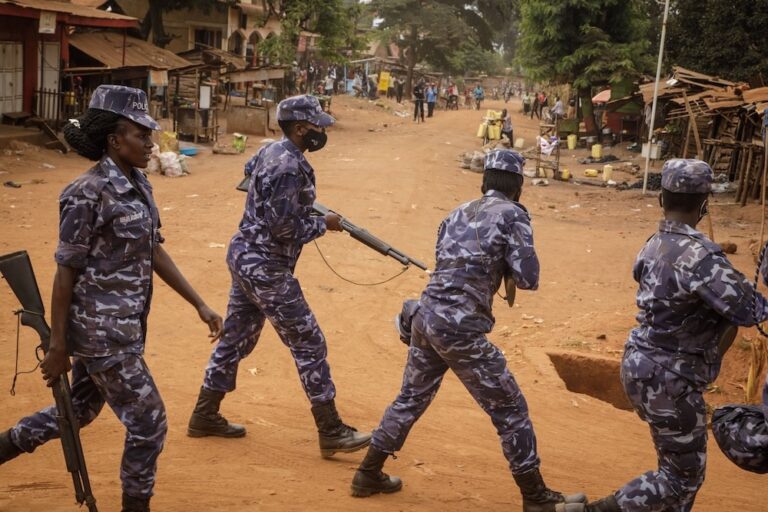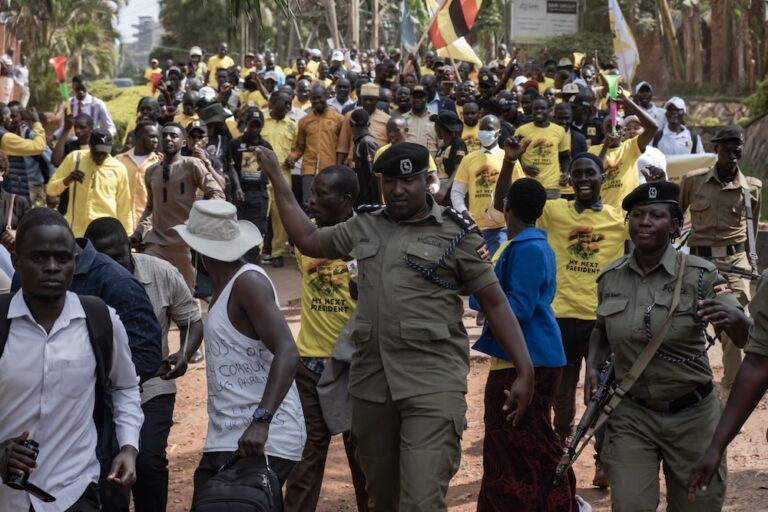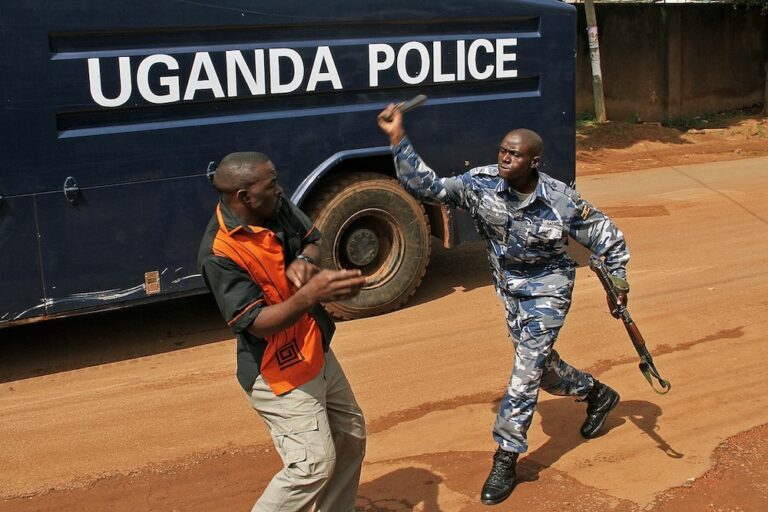(RSF/IFEX) – RSF has hailed the Broadcasting Council’s 18 August 2005 decision to allow Radio KFM back on the air, but voiced concern over the upcoming trial of KFM journalist Andrew Mwenda for sedition and the dismissal of Angelo Izama, the producer of Mwenda’s radio programme. “It is reassuring to see that the talks begun […]
(RSF/IFEX) – RSF has hailed the Broadcasting Council’s 18 August 2005 decision to allow Radio KFM back on the air, but voiced concern over the upcoming trial of KFM journalist Andrew Mwenda for sedition and the dismissal of Angelo Izama, the producer of Mwenda’s radio programme.
“It is reassuring to see that the talks begun a week ago between KFM and the Broadcasting Council have yielded results,” the organisation said. “It is vital that relations between the authorities and the media should be based on dialogue and moderation in this period of tension following Sudanese Vice-President John Garang’s death in the crash of Ugandan President Yoweri Museveni’s helicopter.”
“We are, however, concerned about the prosecution of Mwenda,” RSF added. “It would cause great harm if the Ugandan courts were to use the sedition charge to hand down an excessively severe sentence. We also think it is not the Broadcasting Council’s role to say that a producer should be dismissed.”
Among the programmes broadcast when KFM went back on the air on 18 August was “Andrew Mwenda Live.” It was the 10 August edition of this discussion programme that led to the suspension of the station’s licence.
Payment of 4.95 million shillings (approx. $US2,685; 2,200 euros) in damages and the dismissal of the producer of “Andrew Mwenda Live” were the Broadcasting Council’s conditions for allowing the station back on the air.
Mwenda, who was arrested on 12 August and released on bail on 15 August, faces a five-year prison sentence when he is tried for sedition on 29 August. During his 10 August programme, Mwenda accused the Ugandan government of putting Garang in a poor-quality helicopter and described President Museveni as a “coward” and a “failure.”
That same day, President Museveni threatened to close media outlets that continued to refer to terrorism and sabotage as the possible causes of Garang’s death.


